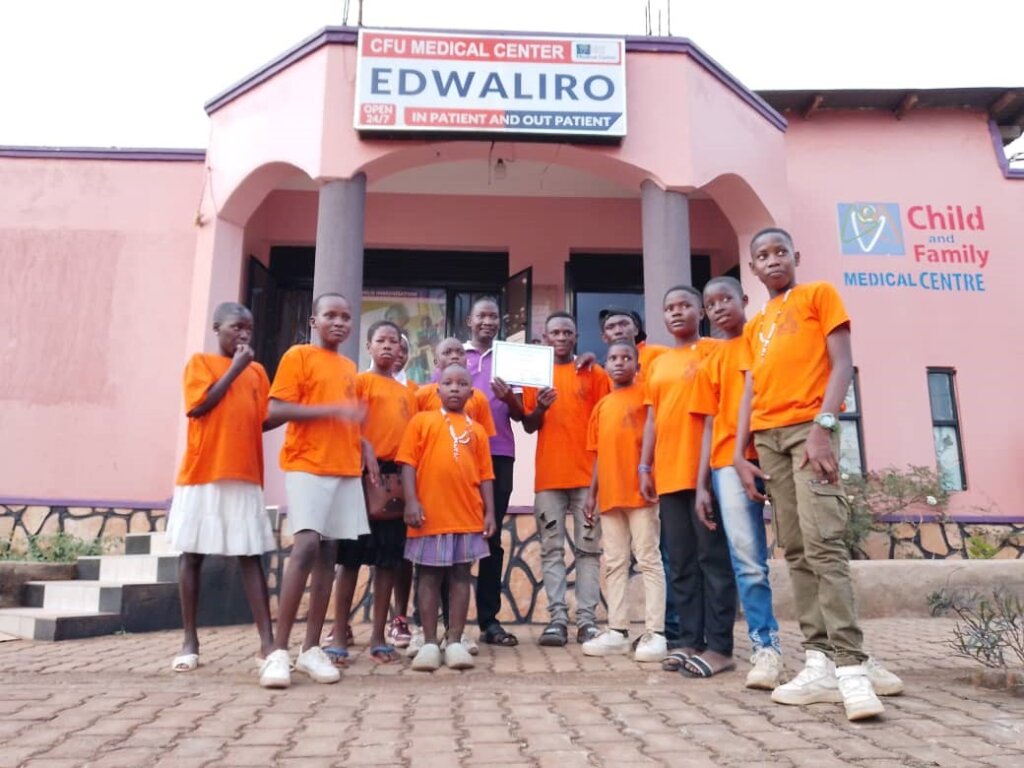![]()
Introduction
This quarter’s report highlights progress made on empowering adolescent girls through personal and menstrual hygiene education, self-esteem training, and distribution of sanitary pads. The intervention aimed at mproving hygiene practices, reduce school absenteeism, and promote self-confidence, especially among girls.
Objectives:
- Promote Personal and Menstrual Hygiene by teaching proper handwashing practices and providing sanitary pads to primary school girls.
- Enhance Self-Esteem and Life Skills through targeted workshops designed to build confidence and resilience in girls.
- Distribute Sanitary Towels (Pads) to girls in need, ensuring they have access to menstrual hygiene products.
- Reinforce Handwashing and General Hygiene practices among school children to prevent illness and promote overall health.
Progress and Achievements:
1. Personal Hygiene (Handwashing) and Sanitary Practices:
Several interactive sessions were conducted focusing on key aspects of personal hygiene. The topics covered included:
Brushing teeth: Children were taught the importance of brushing their teeth twice a day.
Washing hands: Emphasis was placed on washing hands after using the toilet and before eating to prevent infections.
Combing hair: Children were encouraged to maintain clean, combed hair as part of overall cleanliness.
General cleanliness and bathing: The importance of regular bathing, wearing clean clothes, and maintaining body hygiene was emphasized.
Key hygiene practices: Sessions highlighted the importance of practicing good hygiene to stay healthy, prevent illness, and promote self-esteem.
2. Menstrual Hygiene Management:
Sanitary Pads Distribution: 52 girls from two schools received disposable sanitary towels (pads). The program included detailed instructions on how to use and when to change the pads, ensuring the girls maintain proper menstrual hygiene.
Skills Development for Menstrual Hygiene: Girls were trained on the proper use and disposal of sanitary pads. They also learned about managing menstruation in school settings to minimize disruptions to their education.
Menstrual Health Workshops: Four workshops were held in each of the schools, focusing on:
- Understanding the menstrual cycle.
- Myths and facts about menstruation.
- Proper usage and care of reusable and disposable pads.
- Addressing menstrual pain and discomfort.
- Pad placement and hygiene practices during menstruation.
- Management of menstrual discomfort, including cramps and fatigue.
- Discussions on menstruation as a normal part of life to reduce stigma.
These sessions were well-attended, with over 52 girls actively participating in the discussions and activities.
3. Self-Esteem Training:
Addressing Period Stigma: Many girls were shy and hesitant to let others know they were on their period, leading to frequent class absences. The self-esteem training was designed to encourage girls to embrace their menstrual cycles confidently. Through open discussions, girls shared their experiences, helping them realize that menstruation is a natural part of life.
Boys' Participation: Some sessions also included boys to promote understanding and reduce stigma around menstruation. This helped create a supportive environment for girls, where they felt less embarrassed about their periods.
4. Distribution of Sanitary Towels (Pads):
Number of Pads Distributed: A total of 52 packets Softcare sanitary towels were distributed to primary school girls this quarter.
Participants: 52 girls received a full package of pads, each provided with instructions on proper use and disposal.
Impact: Post-distribution feedback showed an improvement in school attendance, as many girls previously missed school due to menstrual issues. Girls reported that having access to sanitary pads made them feel more comfortable and confident attending school during their periods.
Follow-up Support: Teachers conducted follow-up sessions to ensure the girls understood how to care for the pads, and to address any challenges they faced in managing their periods.
Community Outreach and Partnerships:
Parental Involvement: Parents of the girls were invited to participate in community workshops on menstrual hygiene and handwashing practices. 30 parents attended, learning how to support their daughters' hygiene and boost their self-esteem at home.
School Partnerships: We partnered with two local schools to integrate handwashing and menstrual hygiene education into the health curriculum. Teachers received training on how to lead discussions on these sensitive topics, ensuring they could provide ongoing support to their students.
Conclusion:
This quarter has seen significant progress in empowering young girls through menstrual hygiene education, self-esteem training, and the provision of sanitary pads. By focusing on building life skills and ensuring access to essential products, we are helping girls stay in school and manage their periods with confidence and dignity. We aim to continue expanding these efforts in the coming quarter to reach even more girls and support their journey toward empowerment and self-reliance.
![]()
![]()
![Share on Twitter]()
![Share on Facebook]()
